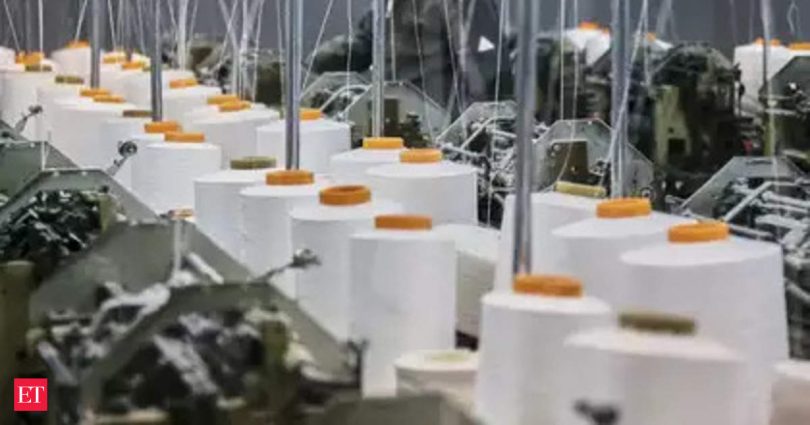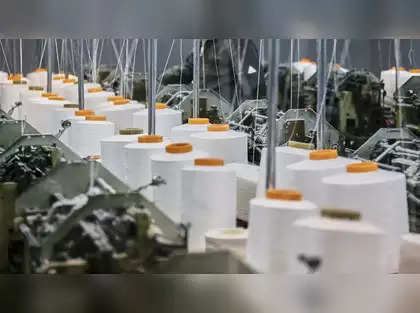[ad_1]
The parks are coming up in Tamil Nadu, Telangana, Gujarat, Karnataka, Madhya Pradesh, Uttar Pradesh and Maharashtra. Nearly Rs 70,000 crore investment and 20 lakh employment generation is envisaged through these parks.
The valuation of the Indian textiles market is estimated at Rs 12 lakh crore.
The Union Ministry of Textiles is overseeing the execution of these projects. A special purpose vehicle (SPV) owned by the Centre and state governments is being set up for each park, which will oversee the implementation of the project.
Mithileshwar Thakur, Secretary General, Apparel Export Promotion Council (AEPC), said the PM MITRA parks seek to address the traditional as well as emerging challenges that the textiles industry has been facing for a long time. These parks will bring together the entire textile value chain under one roof deriving inspiration from the PM’s 5F vision — farm to foreign via fiber, fabric, and fashion focus.
PM MITRA parks will create an enabling ecosystem by facilitating the provision of all utilities, reliable power supply, water availability, wastewater disposal system, and an effective single window clearance for all the regulatory approvals for land, building, electricity, CETP, and other common facilities at a single place, Thakur said. “Integration of entire textiles value chain right from spinning, weaving, processing, dyeing, printing and garmenting under these parks will lead to substantial reduction of logistics cost. This park will not only attract investments, including FDI, but also create huge employment opportunities in the sector,” he said. The textiles ministry will provide financial support in the form of the development capital support up to Rs 500 crore per park to the SPV.
Chairman of Confederation of Indian Textile Industry (CITI) Rakesh Mehra opined that the PM MITRA scheme has been one of the pioneering initiatives for capacity building and attracting new investments. The scheme mandate rightly captures the industry’s requirements for cluster-based production with value chain presence and hub and spoke models aimed at each PM MITRA park.
This, he said, is a very important aspect not just for meeting production efficiency and logistic efficiency, but also as a sustainable model as it significantly reduces the carbon footprint which the textile industry presently has because of the dispersed nature of the various segments — from fiber to garment.
“However, the industry looks forward to a faster implementation of the scheme as the industry presently does not have any important investment promotion scheme to address the need of capacity building for meeting the target of doubling the textile base to USD 350 billion by 2030,” Mehra said.
Rating agency ICRA in a recent report had said that investments in the textile value chain under PLI scheme and PM MITRA park and China Plus One strategy are expected to be the key growth drivers.
PM MITRA parks will offer an opportunity to create an integrated textiles value chain and encourage capacity additions in the segment, ICRA said in its report on apparel and fabrics.
A Competitive Incentive Support (CIS) up to Rs 300 crore per park to the units in PM MITRA park shall also be provided to incentivise speedy implementation.
Convergence with other GOI schemes shall also be facilitated to ensure additional incentives to the Master Developer and investor units.
Under the project, state governments where the parks are being established are supposed to provide contiguous and encumbrance-free land parcels of at least 1,000 acres and will also facilitate the provision of all utilities, reliable power supply, and water availability and waste water disposal system, an effective single window clearance as well as a conducive and stable industrial/textile policy.
[ad_2]
Source link









